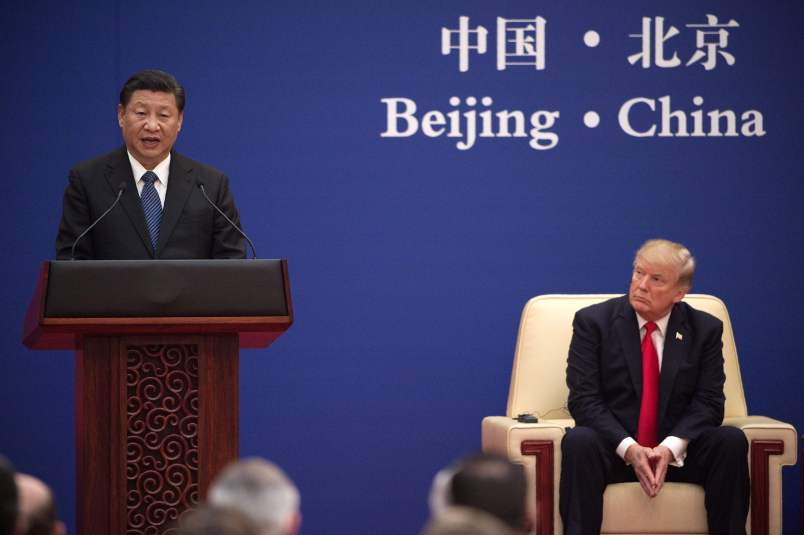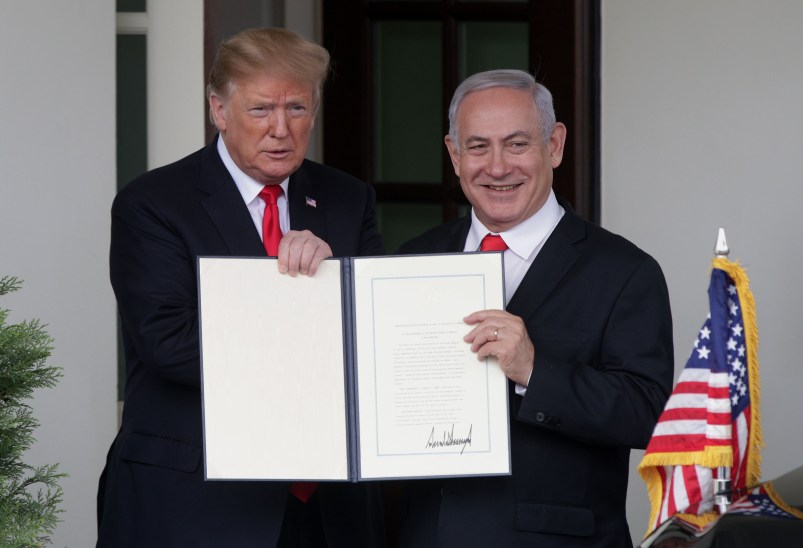BEIJING (AP) — China on Wednesday vowed to impose measures of the “same strength” in response to a proposed U.S. tariff hike on $50 billion worth of Chinese goods in a spiraling technology dispute that has fueled fears it might set back the global economic recovery.
The Commerce Ministry said it would immediately challenge the U.S. move in the World Trade Organization.
“At the same time, we are preparing to take measures of the same strength and same scope against U.S. goods,” said a ministry statement. “These measures will be announced shortly.”
The clash reflects growing tension between President Donald Trump’s promises to narrow the multibillion-dollar U.S. trade deficit with China and the ruling Communist Party’s development plans. Those include using access to China’s vast market as leverage to induce foreign automakers and other companies to help create or improve industry and technology.
Beijing was reacting to a U.S. announcement Tuesday of a list of Chinese goods targeted for a tariff hike previously approved by Trump. They include medical, aerospace and information technology.
The U.S. Trade Representative’s Office said those products benefit from Chinese policies that including requiring foreign companies to hand over technology in violation of Beijing’s free-trade commitments.
Chinese officials have given no indication what U.S. goods might be targeted in response but businesspeople and economists have cited Boeing jetliners and soybeans as possible targets.
The dispute has fueled fears it might set back the global recovery if other governments are prompted to raise their own import barriers.
Asian governments will closely watch Beijing’s reaction in a dispute that “may compel countries to pick sides,” said Weiliang Chang of Mizuho Bank in a report.
On Wednesday, Asian stock markets were mixed. Market benchmarks in Hong Kong and Tokyo were off 0.2 percent at midday but the Shanghai Composite Index rose 0.8 percent.
American companies have long chafed under Chinese regulations that require them to operate through local partners and share technology with potential competitors in exchange for market access. Business groups say companies feel increasingly unwelcome in China’s state-dominated economy and are being squeezed out of promising industries.
Chinese policies “coerce American companies into transferring their technology and intellectual property to domestic Chinese enterprises,” said a USTR statement.
A USTR report released Tuesday also cited complaints Beijing uses cyber spying to steal foreign business secrets, but it was unclear whether the latest tariff hike was in response to that.
In a separate dispute, Beijing raised tariffs Monday on a $3 billion list of U.S. goods including pork, apples and steel pipe in response a higher American import duties on steel and aluminum.
The technology-related tariffs are more sensitive for President Xi Jinping’s government because they strike at industries seen by communist leaders as vital for China’s future development.
Companies have warned Trump’s action might hurt U.S. companies and consumers.
“The administration is rightly focused on restoring equity and fairness in our trade relationship with China,” said the executive vice president of the U.S. Chamber of Commerce, Myron Brilliant, in a statement. “However, imposing taxes on products used daily by American consumers and job creators is not the way to achieve those ends.”
The USTR also launched a WTO case last month challenging Chinese policies it said unfairly limit foreign companies’ ability to control their technology.
U.S. authorities say Beijing denies foreign companies the right to block use of technology by a Chinese entity once a licensing period ends and imposes contract terms that are less favorable than for local technology.
Foreign companies are increasingly alarmed by initiatives such as Beijing’s long-range industry development plan, dubbed “Made in China 2025,” which calls for creating Chinese global leaders in electric cars, robots and other fields. Foreign companies complain that strategy appears to limit or outright block access to those industries.
Beijing reported a trade surplus of $275.8 billion with the United States last year, or two-thirds of Beijing’s global total. Washington reports different figures that put the gap at a record $375.2 billion.
China has accused Trump of damaging the global system of trade regulation by taking action under U.S. law instead of through the WTO. The Commerce Ministry’s statement Wednesday criticized the latest moves as “a typical unilateralist and protectionist practice.”






